
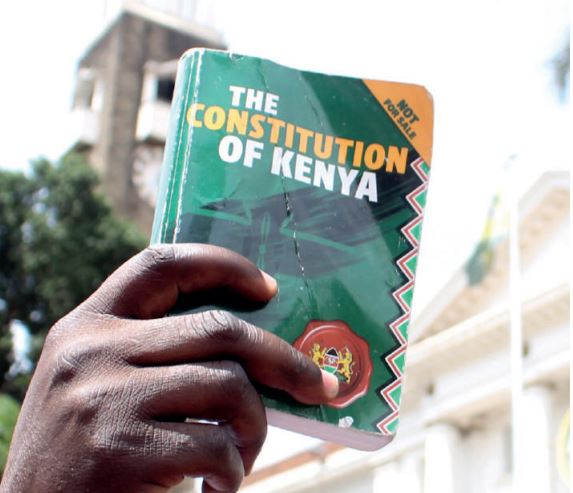 A protester with a copy of the constitution in Nairobi /FILE
A protester with a copy of the constitution in Nairobi /FILE
We have just marked—indeed, celebrated—the promulgation of the constitution on August 27, 2010.
However, it seems
that some things about the constitution are not well understood. I am not here
focusing on politicians who deliberately ignore the constitution.
Dissolving
Parliament
Dissolving Parliament is not, of course, a matter of putting it in a bath of acid. Parliament dissolves when the current set of MPs and senators cease to hold their seats in anticipation of an imminent election. Under the old constitution, Parliament would be dissolved automatically on the fifth anniversary of its first sitting following the previous general election.
In fact, that never
happened because the President could dissolve it at any time—and would do so
to set off the process for a general election. The last dissolution of that
sort was by President Kibaki in 2007. It was not necessary to do the same in
2012/13 because by then the constitution was in force that said Parliament
would be dissolved at the end of its term.
The President
cannot, under the constitution now, call an election by dissolving Parliament. The
constitution does not even use the expression “dissolve” about the end of a
Parliament’s life. It simply says its term “expires” on the date of the next
election.
People—including
columnists—should stop saying “The President should dissolve” – he cannot do
it. He can do so only if the Chief Justice has advised him (which really means
told him) to do so because Parliament has not passed the law required by the
Fifth Schedule of the constitution (Article 261(7)). In fact, President Uhuru
was told to do so by Chief Justice Maraga in 2020 – on the gender issue—and
simply did not.
Can President
arrest people?
The idea is ridiculous, of course. But one or two people have said things like “If you're the President and you know those who are stealing, why don't you arrest them?” Even the President said, “We are going to arrest them”.
“We” does not include the President – unless
he envisages a citizen’s arrest. Section 34 of the Criminal Procedure Code says
“A private person [which means not police] may arrest any person … whom he
reasonably suspects of having committed a felony.” Is bribery a felony? I would
argue not: “felony” is used in the Penal Code and defined there (as an offence
with a possible penalty of three years or more imprisonment). But bribery is an
offence not under that code but under the Anti-Bribery Act. It is time we did away with these words
“felony” and “misdemeanour”, which are not used consistently.
Neither the President
nor anyone else in government can tell the police whom to arrest. “No person
may give a direction to the Inspector-General with respect to— (a) the
investigation of any particular offence or offences; (b) the enforcement
of the law against any particular person or persons.”
The President
should inform the Ethics and Anti-Corruption Commission or the police if there
is credible evidence against anyone of bribery.
Limiting human
rights
People may be aware
of and enthusiastic about rights such as freedom of expression, demonstration,
to water and health, to dignity and equality. On the other hand, courts
sometimes say “rights are not absolute” - which is true (with a few exceptions
including fair trial). But neither side may get to grips with when and why
those rights may be restricted by law. The constitution when older lawyers and
most judges studied approached this question very differently.
Some courts have
done a very good job of analysing the case before them using Article 24. They
have to look for a good balance between the right protected and the purpose to
be achieved by law that limits it. Particularly they must ask: could the
purpose of the law have been achieved while limiting rights less? Carefully thought through and argued, this
approach should not involve just confrontation but rational decision making.
Date of next
election
Occasionally,
someone argues that the election date is wrong under the constitution. There is
not really an issue and it does not need a court to decide. Common sense suggests
that the drafters of the constitution did not intend that the gap between
general elections should sometimes be about five years and sometimes four.
The constitution says
that, “A general election of members of Parliament shall be held on the second
Tuesday in August in every fifth year” (Art. 101(1)). The common sense meaning
of “in every fifth year” is in every fifth calendar year. We are now in the
calendar year 2025.
The days of each
date are not the same in succeeding years. The second Tuesday in August 2022 was
9, this year August 12, and in 2027 will be August 10.
In other words, the
2027 election will be held five years and a day after the 2022 one. The 2022
elections were held five years less one day after the 2017 one. Some people
have argued that if held on August 10 the election will be in the wrong year. How?
“Year” can mean
either a calendar year or a period of 365 days (366 if a February 29 is
involved). Article 29 says that if a period of time is “expressed as years”
that period ends at the beginning of the date of “the relevant year” that
corresponds to the date on which the period began. So five years from August 9,
2022 is August 9, 2027. August 10 will be the beginning of the sixth year.
The problem is that
the election date is not expressed as years. It is expressed as a day in a
month in a year. The misunderstanding is compounded because the 2017 election
was held in the wrong year. I was surprised that MPs did not sue to say they
should have stayed on till 2018.
Devolution
Devolution has
caused many problems of understanding, not just to citizens generally but to
lawyers and judges, too. The idea that one level of government can do things
but the other cannot (especially if it means the national government lacks
powers) is hard to understand. I believe it is right that counties do not have
power to give bursaries for levels of education they have no power to be
involved in.
Counties have
limited power to tax, but many still raise “cess”. It’s a tax – it is not in
return for any goods or services. Courts have not yet clearly held this.
I believe Raila
Odinga has a misunderstanding when he says CDF money should be given to
counties. The first decision in the annual allocation of revenue is to divide
the “revenue raised nationally” between the national government and the
counties as a whole. At least 15 per cent must go to the counties. The CDF
comes from the national government share. Originally the courts held it was
unconstitutional because MPs and their committees could spend it on things that
were county responsibilities – like local clinics and cattle dips. So,
Parliament changed the law to say it must be used only for national
responsibilities.
The line is not
always easy to draw – which is one reason why the Supreme Court said the CDF
was unconstitutional. Yes, I believe it should be abolished. But I am not
convinced that counties should then be given 2.5 per cent more of the national
revenue. The CDF is allocated to the national government for national
government tasks - which counties cannot perform.
Everyone must
respect, and if necessary, defend the constitution. They should also be
prepared to use the constitution – it is their tool to protect themselves and
achieve accountability of government.
This requires
careful reading—realizing that often one article cannot be fully understood
by itself. And common sense.






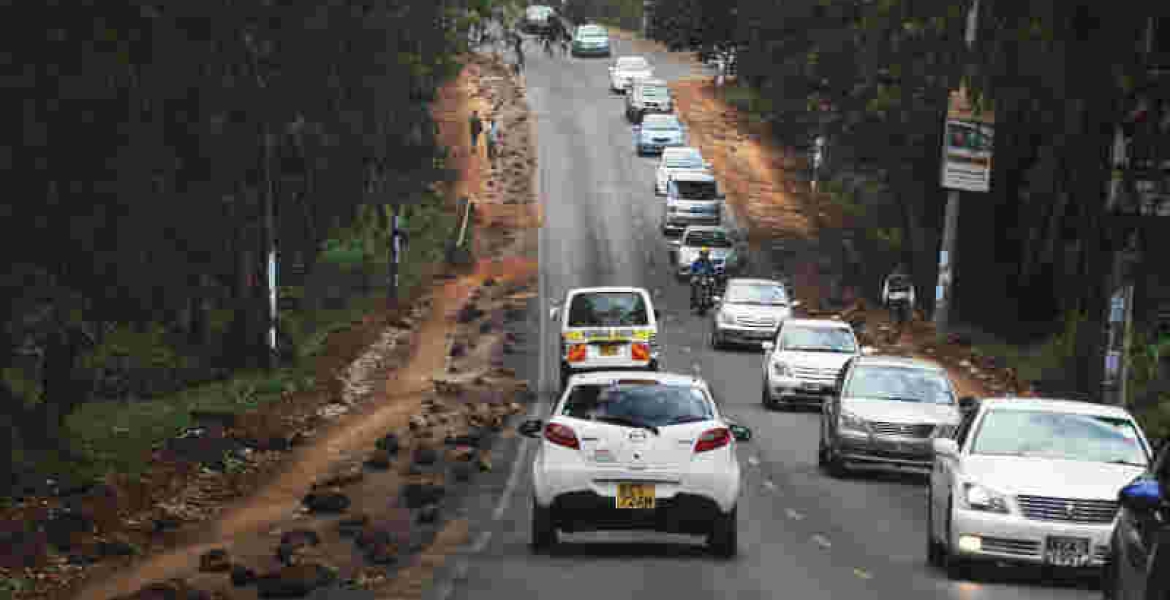

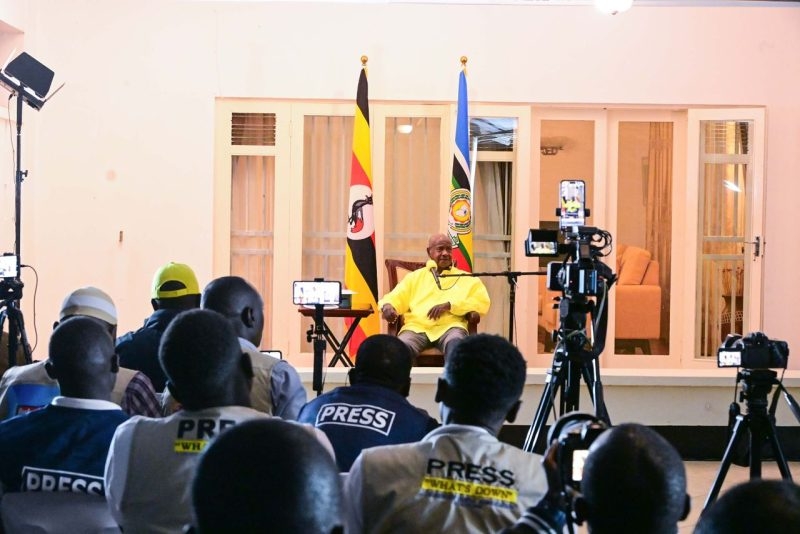


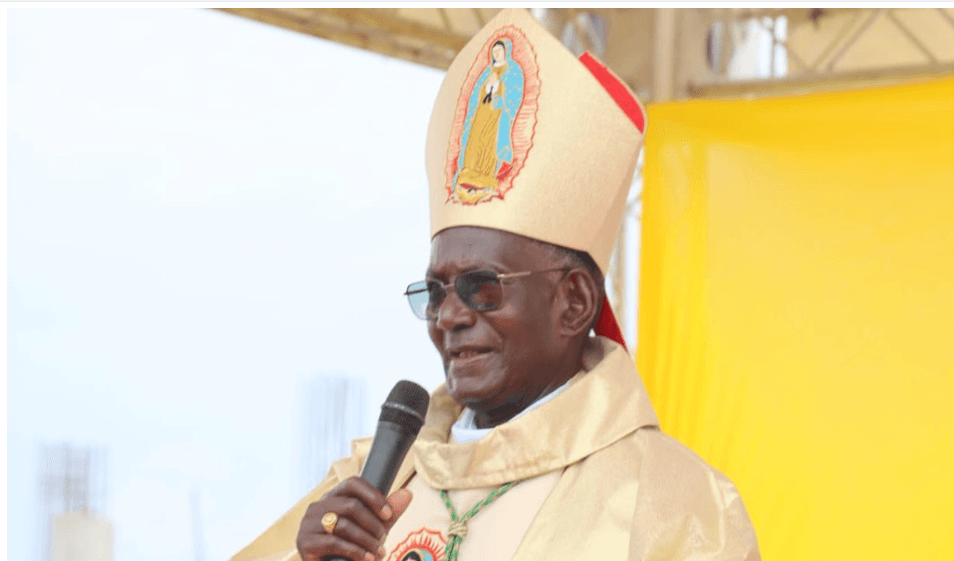




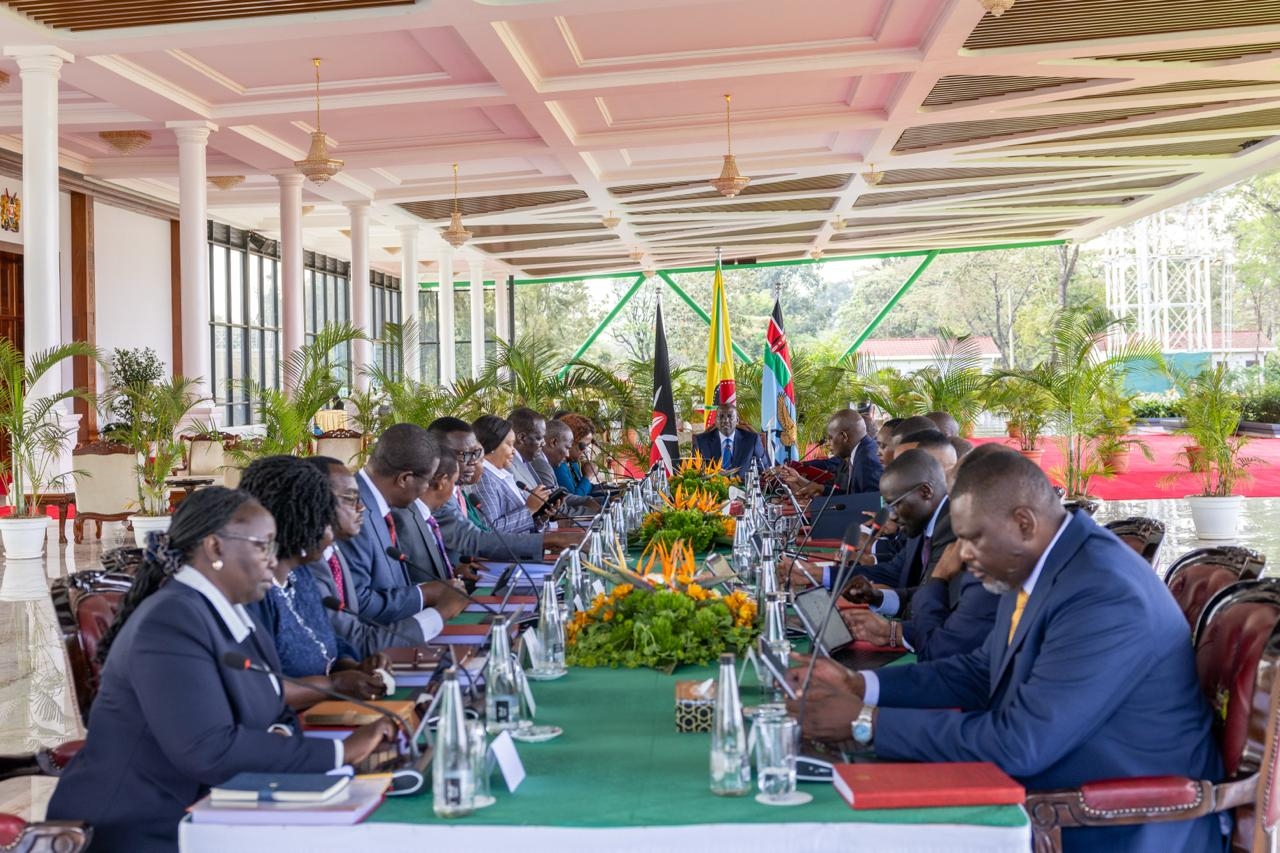
![[PHOTOS] Gor fans march to Bondo to honour Raila](/_next/image?url=https%3A%2F%2Fcdn.radioafrica.digital%2Fimage%2F2025%2F11%2F753aaa26-999c-40fe-bf2e-409fc6282745.jpeg&w=3840&q=100)
